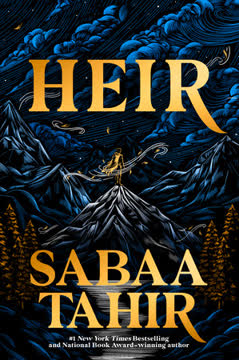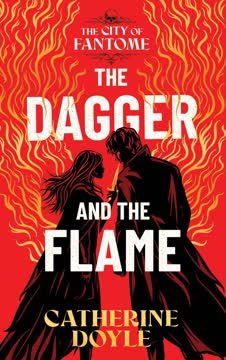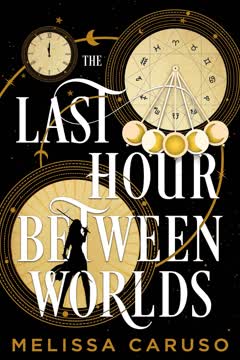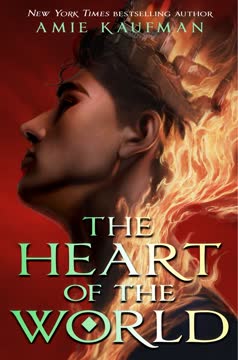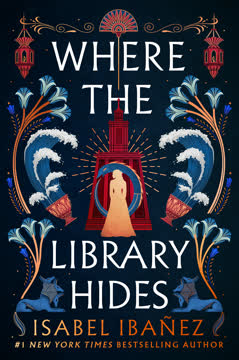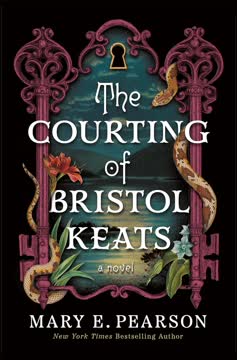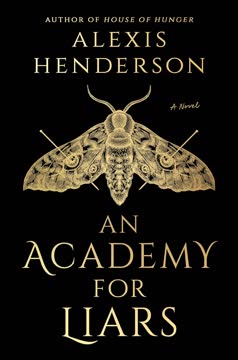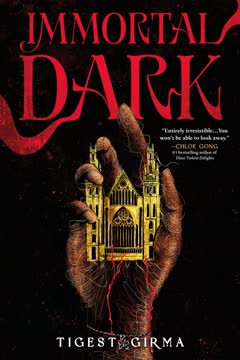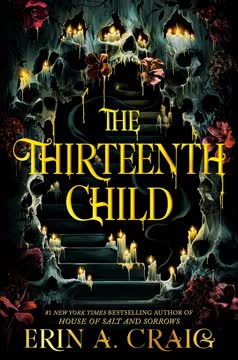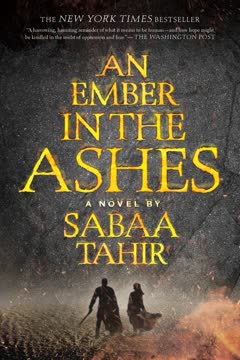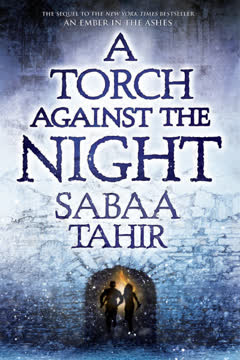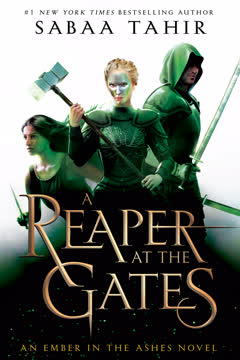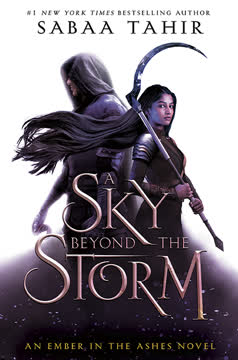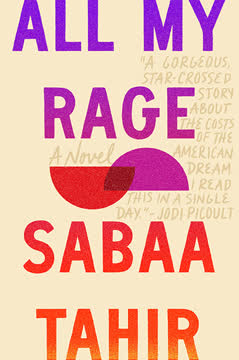Plot Summary
Gutter Child's Vengeance
In the snow-choked gutters of Kegar, orphan Aiz bet-Dafra is driven by a burning need for vengeance. Scarred by the loss of her mother and the deaths of children in a cloister fire, Aiz's anger is her only companion. She plots to murder Tiral, the highborn commander responsible for the tragedy, believing that only blood can balance the scales. Her world is one of hunger, cold, and the ever-present threat of violence, but she clings to the hope that Mother Div, the patron of orphans, will bless her act of retribution. As she navigates the treacherous power structures of Kegar, Aiz's fury becomes both her weapon and her curse, setting her on a path that will test the limits of her faith, loyalty, and humanity.
Prince and the Ghosts
Zacharias "Quil" Farrar, heir to the Martial Empire, is a prince shaped by war, grief, and the weight of expectation. Raised among the Tribes, Quil is an outsider everywhere—too Plebeian for the Illustrians, too Martial for the Tribes. He is shadowed by the deaths of friends and the ghosts of his family's violent past. When a series of child murders rocks the Empire, Quil is drawn into a mystery that threatens the fragile peace. His encounters with the Bani al-Mauth, the Chosen of Death, and the memory of his lost love, Ilar, deepen his sense of isolation. As the Empire teeters on the brink, Quil must decide whether to embrace his destiny or flee from the legacy of blood that binds him.
Tracker's Blood Oath
Sirsha Westering, a banished Jaduna tracker, survives by her wits and her forbidden magic. Hunted by her own kin, she is lured into a blood oath by Elias Veturius to hunt a child-killer whose trail is soaked in magic and death. Sirsha's skills allow her to read the land, wind, and water, but the killer's spoor is elusive, shifting, and unnatural. As she navigates the lawless Roost and the treacherous wilds, Sirsha's past and present collide. The oath she swears is unbreakable, and the closer she draws to her quarry, the more she realizes that the true cost of her magic—and her freedom—may be her own life.
Failed Assassination
Aiz's plan to kill Tiral collapses when he anticipates her attack, exposing her to humiliation and brutal retaliation. Captured and beaten, Aiz is forced to confront the consequences of her rage—not just for herself, but for the innocent clerics and orphans who become collateral damage. Her failure lands her in the Tohr, Kegar's infamous prison, where despair and violence reign. Yet even in the darkness, Aiz clings to the stories of Mother Div, finding solace and strength in the tales that once comforted her as a child. Her anger, once a weapon, now threatens to consume her, but it also becomes the spark of resistance that will shape her destiny.
Masks and Murders
As the Empire reels from attacks and internal strife, Quil is thrust into a web of political intrigue and personal betrayal. The deaths of children and Masks—elite soldiers—hint at a deeper, magical threat. Quil's relationship with his aunt, Empress Helene, is strained by secrets and the looming specter of abdication. When he learns of a political marriage to a Kegari noble, his sense of agency is shattered. The Empire's enemies close in, and Quil must navigate the treacherous currents of power, love, and loss, even as the ghosts of his past demand answers he cannot give.
The Jaduna's Price
Sirsha's journey brings her face-to-face with her own people, the Jaduna, and the sister who exiled her. Forced into a false engagement with Quil to escape execution, Sirsha is drawn deeper into the hunt for the magical killer. The Jaduna's laws are unforgiving, and Sirsha's blood oath becomes a noose tightening around her neck. As she and Quil grow closer, the boundaries between duty and desire blur. The killer's trail leads them across war-torn lands, and Sirsha must decide whether to embrace her power or be destroyed by it.
Tohr: Tales and Torment
Imprisoned in the Tohr, Aiz endures torture, deprivation, and the slow erosion of hope. Yet her storytelling becomes a lifeline for herself and her fellow prisoners, transforming anger into a force for survival. The Sacred Tales of Mother Div, once a comfort, now become a rallying cry. Aiz's faith is tested as she witnesses the suffering of innocents, but a vision of Mother Div offers her a new purpose. Marked as the chosen, Aiz escapes the Tohr, her anger now tempered by a sense of destiny and the burden of leadership.
Empire's Burning Night
The Martial Empire's greatest port, Navium, is consumed by a sudden, devastating Kegari attack. Sails rain fire from the sky, and the city is plunged into chaos. Quil, Sufiyan, Arelia, and Sirsha barely escape, their fates entwined by violence and necessity. The Empire's power is broken, and the survivors are forced to flee across the sea, pursued by enemies both human and magical. The fall of Navium marks the end of an era and the beginning of a desperate struggle for survival and redemption.
The Hunt Begins
As the survivors regroup, alliances are forged and tested. Sirsha's skills as a tracker become vital, but her blood oath grows heavier. Quil and Sirsha's relationship deepens, complicated by secrets and the ever-present threat of betrayal. The Kegari, led by the enigmatic Tel Ilessi, tighten their grip on the Empire. The hunt for the magical killer becomes a race against time, with the fate of nations hanging in the balance. Each character must confront their own demons as they journey toward a confrontation that will change them forever.
Mother Div's Bargain
Freed from the Tohr and guided by visions, Aiz seeks out the imprisoned spirit of Mother Div. The cleric's power is intoxicating, granting Aiz mastery over wind and magic—but at a terrible price. To sustain her strength, Mother Div demands human hearts, and Aiz is forced to choose between the lives of the few and the salvation of the many. The line between savior and monster blurs as Aiz embraces her role as Tel Ilessi, even as the hunger within her grows.
The Empty Throne
The true nature of Mother Div is revealed: she is not a benevolent spirit, but a force of insatiable hunger, born from the Sea of Suffering. Aiz's sacrifices mount, and her humanity erodes. Quil, betrayed by the woman he loved, is forced to confront the cost of mercy and the necessity of violence. Sirsha, bound by her oath and her love for Quil, realizes that only a sacrifice can end the cycle of suffering. The battle for the Empire's soul reaches its zenith as old loyalties are tested and new alliances forged in blood.
The Binding and the Betrayal
In a final confrontation, Sirsha faces Mother Div, now revealed as a creature of the Empty, a void that feeds on pain and loss. Drawing on the deepest well of her magic and her willingness to sacrifice herself for love, Sirsha binds Div, shattering the monster's hold on the world. The cost is nearly her life, and she is cast into the unknown, her fate uncertain. Quil, left behind, is haunted by loss but determined to rebuild and seek out the woman who saved him.
The Return's True Cost
With Mother Div's power, Aiz crushes her enemies and claims the title of Tel Ilessi. The Kegari prepare for the Return to their homeland, but the price is steep: the deaths of children, the betrayal of friends, and the loss of Aiz's own soul. Her triumph is marred by guilt and the realization that she has become the very monster she once sought to destroy. The cycle of sacrifice and ambition continues, leaving the future uncertain and the wounds of the past unhealed.
The Sea of Suffering
The true source of Mother Div's power is the Sea of Suffering, a dimension of pain and emptiness that feeds on human misery. The book's magic, the binding of spirits, and the hunger for hearts are all manifestations of this ancient force. The characters' struggles with magic, memory, and sacrifice are echoes of a larger battle between creation and destruction, love and indifference. The Sea of Suffering is both the origin and the end, a reminder that every act of power carries a cost.
Sacrifice and Salvation
Sirsha's willingness to sacrifice herself for Quil becomes the key to breaking Div's curse. Her love, forged in pain and defiance, transforms the cycle of suffering into an act of redemption. The binding of Div is not just a magical act, but a testament to the power of selflessness in the face of overwhelming darkness. The survivors are left to pick up the pieces, their scars a testament to the price of hope and the possibility of healing.
The End of Hunger
With Div destroyed and the Tel Ilessi dead, the Empire and Kegar are left to rebuild. The survivors—Quil, Sufiyan, Arelia, Tas, and Sirsha—are changed by their ordeals. The hunger that drove Mother Div is gone, but the wounds she inflicted remain. The promise of the Return is unfulfilled, and the future is uncertain. Yet in the ashes of war, there is a glimmer of hope: the possibility of forgiveness, the resilience of love, and the enduring power of story.
The Empty's Embrace
In the aftermath, Sirsha finds herself on a desolate shore, confronted by the lingering presence of Div. The Sea of Suffering is not easily banished, and the struggle between hunger and sacrifice, power and mercy, endures. The survivors must choose whether to repeat the mistakes of the past or forge a new path. The story ends not with victory or defeat, but with the recognition that the battle for the soul—of a person, a people, a world—is never truly over.
Characters
Aiz bet-Dafra (Tel Ilessi)
Aiz is a gutter-born orphan whose life is defined by loss, rage, and a desperate hunger for justice. Her relationship with Cero is one of deep, complicated loyalty, and her journey is marked by a transformation from victim to would-be savior to monster. Psychoanalytically, Aiz is driven by trauma and a need for control, which makes her susceptible to the seductive power of Mother Div. Her development is a tragic arc: she gains the power to change her world but loses her soul in the process, sacrificing innocence for the illusion of salvation. Her connection to Quil is both romantic and symbolic—a bridge between worlds, and a reminder of what she might have been.
Zacharias "Quil" Farrar
Quil is the heir to the Martial Empire, a man torn between duty and desire, haunted by the ghosts of his past and the weight of his family's sins. His relationships—with Sufiyan, Arelia, Tas, and especially Sirsha—reveal a longing for connection and a fear of becoming the monster his father was. Quil's magic, rooted in memory and empathy, is both a gift and a curse, allowing him to see the truth but also binding him to the pain of others. His arc is one of reluctant leadership, forced to confront the cost of mercy and the necessity of violence. His love for Sirsha is redemptive, but it cannot shield him from the consequences of betrayal.
Sirsha Westering
Sirsha is a Jaduna exile whose forbidden magic and sharp wit are her only defenses in a world that wants her dead. Her blood oath to Elias and her growing love for Quil force her to confront the limits of self-reliance and the meaning of sacrifice. Psychoanalytically, Sirsha is driven by a fear of abandonment and a need to prove her worth, both to herself and to those who cast her out. Her journey is one of self-discovery, culminating in the ultimate act of self-sacrifice to bind Div. Her relationships—with her sister R'zwana, with J'yan, and with Quil—are fraught with pain, longing, and the hope of belonging.
Mother Div
Once a revered cleric and patron of orphans, Mother Div is revealed as a force of insatiable hunger, born from the Sea of Suffering. She manipulates Aiz, offering power in exchange for human hearts, and becomes the true antagonist of the story. Psychoanalytically, Div represents the shadow self—the part of humanity that justifies atrocity in the name of a greater good. Her relationship with Aiz is parasitic, feeding on her ambition and guilt. Div's arc is a cautionary tale about the dangers of unchecked power and the seductive nature of sacrifice.
Sufiyan Veturius
Sufiyan is Quil's closest friend and the son of legendary heroes. Haunted by the death of his brother Ruh, Sufiyan masks his pain with humor and bravado. His journey is one of grief and forgiveness, as he seeks both vengeance and understanding. His relationship with Arelia is a source of comfort and growth, and his loyalty to Quil is unwavering, even when tested by betrayal and loss. Sufiyan's arc is about the struggle to heal in a world that offers little solace.
Arelia Farrar
Arelia is Quil's cousin, a brilliant engineer whose pragmatism and curiosity ground the group. She is both a source of comic relief and a moral compass, challenging the others to think beyond violence and tradition. Her relationship with Sufiyan is one of mutual respect and burgeoning affection. Arelia's arc is about finding purpose in chaos and using intellect as a tool for survival and change.
Cero
Cero is Aiz's childhood companion, a pilot whose love for her is both his strength and his undoing. He is torn between loyalty to Aiz and horror at what she becomes. Psychoanalytically, Cero represents the cost of complicity—the way good intentions can be twisted by love and fear. His arc is one of disillusionment and, ultimately, tragic acceptance.
R'zwana
R'zwana is Sirsha's older sister and a Jaduna Raan-Ruku whose magic is waning. Her relationship with Sirsha is defined by rivalry, resentment, and a desperate need for validation. R'zwana's arc is a study in the corrosive effects of envy and the tragedy of wasted potential. Her inability to accept her own limitations leads to betrayal and loss.
Tas
Tas is Quil's childhood friend and the Empire's most resourceful spy. His wit and charm mask a deep loneliness and a longing for belonging. Tas's arc is about the cost of living in the shadows and the sacrifices required for the greater good. His loyalty to Quil and the group is unwavering, even as he struggles with his own demons.
Ruhyan
Ruh is the beloved child whose death at the hands of Mother Div sets the story's central conflict in motion. His innocence and love of stories make him a symbol of hope and the cost of ambition. Ruh's presence haunts the survivors, reminding them of what is at stake and what has been lost.
Plot Devices
Dual and Interwoven Narratives
The novel employs alternating points of view—Aiz, Quil, and Sirsha—each with distinct voices and motivations. This structure allows the reader to experience the same events from different angles, heightening tension and empathy. The interweaving of personal quests (vengeance, duty, survival) with the larger political and magical conflicts creates a tapestry of interconnected fates. The use of alternating voices also enables foreshadowing, as secrets and betrayals are revealed piecemeal, building suspense and emotional resonance.
The Sacred Tales and Storytelling
The Sacred Tales of Mother Div are both a source of comfort and a tool of control. Storytelling is used to inspire hope, justify violence, and shape identity. The motif of the "Ninth Sacred Tale"—a story that is both a prophecy and a curse—serves as a central plot device, driving Aiz's quest and the unfolding of Mother Div's true nature. The act of telling and retelling stories becomes a means of survival, resistance, and, ultimately, transformation.
Magic as Metaphor and Mechanism
Magic in the novel is not just a tool, but a reflection of the characters' inner lives. Aiz's windsmithing is fueled by anger and loss; Sirsha's tracking is tied to her longing for belonging; Quil's memory magic is both a gift and a burden. The rules of magic—emotion exerted on an element—mirror the psychological struggles of the characters. The Sea of Suffering, the Empty, and the binding of spirits are metaphors for trauma, hunger, and the cost of power. The use of Ikfa, a magic-suppressing metal, introduces a physical manifestation of repression and control.
The Blood Oath and Binding
The blood oath Sirsha swears to Elias is a literal and figurative chain, compelling her to hunt the killer at any cost. The Adah oath between Sirsha and Quil, forged under duress, becomes a source of both strength and pain. The binding of Div is the climax of these intertwined vows, requiring the ultimate sacrifice. These devices explore themes of agency, consent, and the price of loyalty.
Foreshadowing and Prophecy
The novel is rich with foreshadowing—visions of Mother Div, the warnings of seers, the recurring motif of hunger and sacrifice. Prophecy is both a guide and a trap, luring characters toward destinies they cannot escape. The tension between fate and free will is a constant undercurrent, as characters struggle to assert control over their lives in the face of overwhelming forces.
Analysis
"Heir" by Sabaa Tahir is a sweeping, emotionally charged fantasy that interrogates the nature of power, sacrifice, and the stories we tell ourselves to survive. At its core, the novel is a meditation on the cost of ambition and the seductive allure of righteous violence. Through the intertwined journeys of Aiz, Quil, and Sirsha, Tahir explores how trauma, love, and the hunger for justice can both redeem and destroy. The novel's use of magic as a metaphor for psychological struggle is particularly resonant, illustrating how the wounds of the past shape the choices of the present. The Sea of Suffering—the Empty—serves as a powerful symbol for generational pain and the dangers of unchecked desire. Ultimately, "Heir" is a cautionary tale about the perils of trading humanity for power, the necessity of self-sacrifice, and the enduring hope that even in the darkest places, love and story can light the way. The book's lessons are clear: true leadership requires humility, the courage to face one's own darkness, and the willingness to choose mercy over vengeance, even when the world demands otherwise.
Last updated:
Review Summary
Heir received overwhelmingly positive reviews, with readers praising Tahir's expanded world-building, complex characters, and gripping plot. Many noted the book's exploration of themes like power, sacrifice, and moral ambiguity. Fans of the previous series appreciated callbacks to familiar characters while enjoying the new generation's story. Some readers found the romance compelling, though a few felt it developed too quickly. The ending left many eagerly anticipating the sequel. Most reviewers highly recommend reading the "An Ember in the Ashes" series first for maximum enjoyment and context.
Heir Duology Series
Similar Books
Download PDF
Download EPUB
.epub digital book format is ideal for reading ebooks on phones, tablets, and e-readers.
